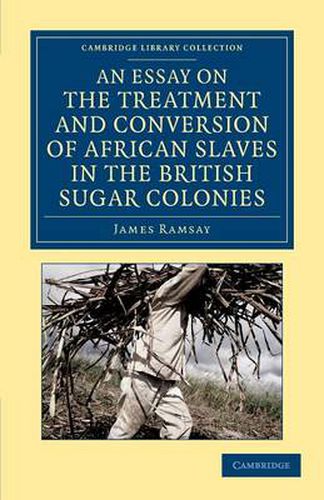Readings Newsletter
Become a Readings Member to make your shopping experience even easier.
Sign in or sign up for free!
You’re not far away from qualifying for FREE standard shipping within Australia
You’ve qualified for FREE standard shipping within Australia
The cart is loading…






Sugar cane plantations had operated across almost every island in the West Indies since the seventeenth century. Run by British planters, they relied on slavery as their main source of labour. A surgeon and Anglican minister, James Ramsay (1733-89) witnessed at first hand the exploitation of African slaves in Britain’s West Indian colonies. Working there for over twenty years, as both a Christian missionary and a practising surgeon, he became keenly involved in the campaign to improve the welfare of slaves. This extended essay, first published in 1784, was an early and highly influential contribution to the anti-slavery movement, generating both enlightened acclaim and deep opposition. Analysing the relationships between slaves and their masters, discussing the role of slaves in society, and proposing various measures to improve their lives, this work remains a relevant text in Caribbean and colonial history.
$9.00 standard shipping within Australia
FREE standard shipping within Australia for orders over $100.00
Express & International shipping calculated at checkout
Sugar cane plantations had operated across almost every island in the West Indies since the seventeenth century. Run by British planters, they relied on slavery as their main source of labour. A surgeon and Anglican minister, James Ramsay (1733-89) witnessed at first hand the exploitation of African slaves in Britain’s West Indian colonies. Working there for over twenty years, as both a Christian missionary and a practising surgeon, he became keenly involved in the campaign to improve the welfare of slaves. This extended essay, first published in 1784, was an early and highly influential contribution to the anti-slavery movement, generating both enlightened acclaim and deep opposition. Analysing the relationships between slaves and their masters, discussing the role of slaves in society, and proposing various measures to improve their lives, this work remains a relevant text in Caribbean and colonial history.